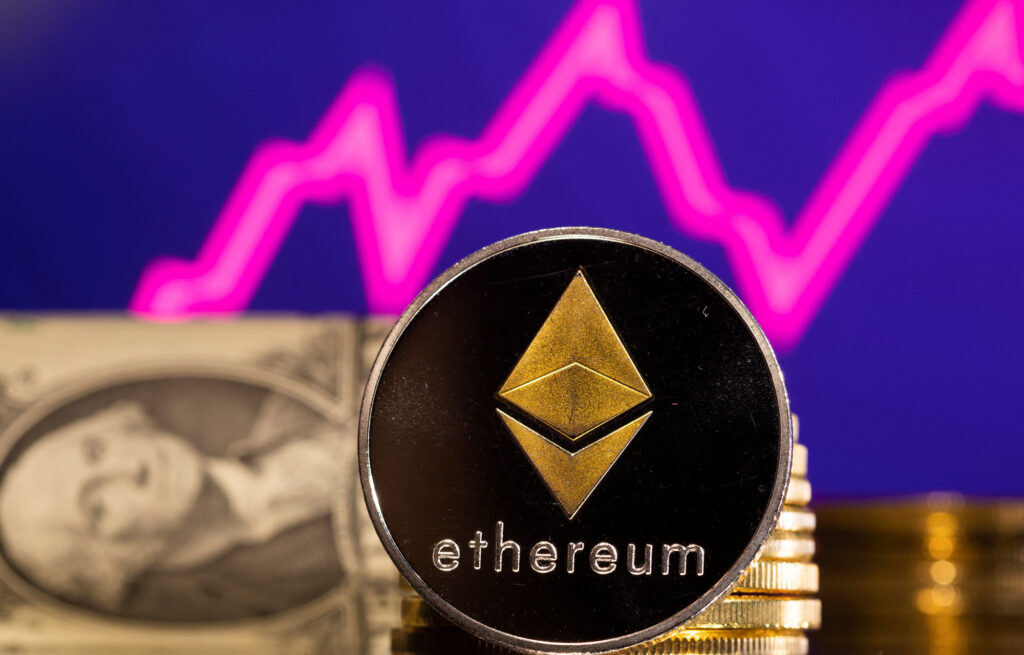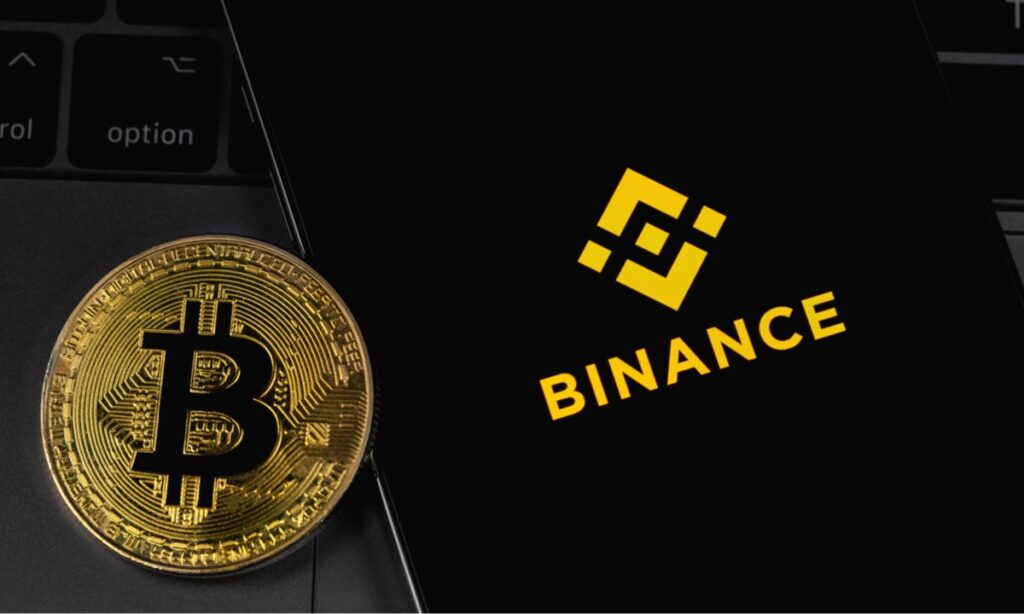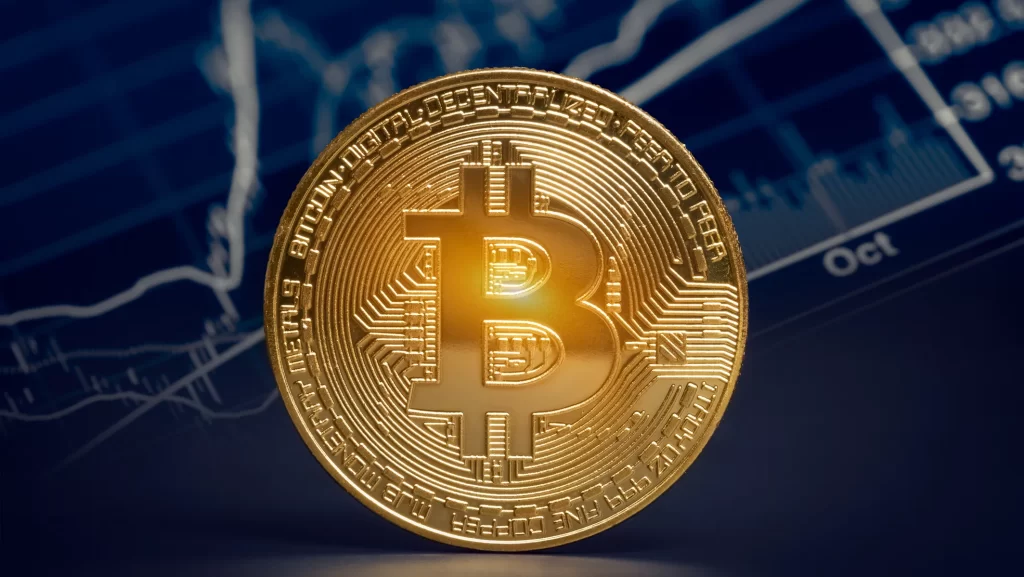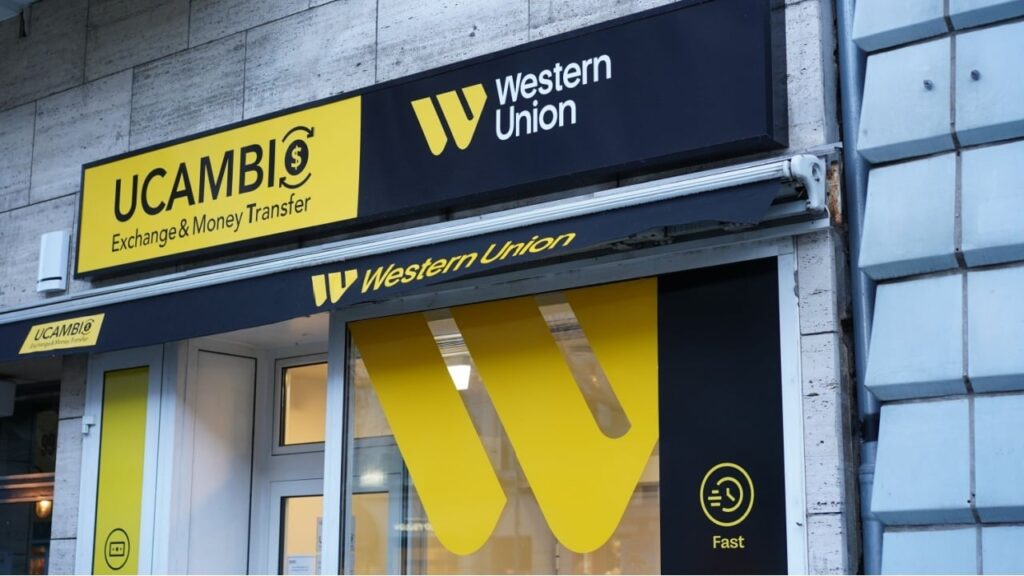The Federal Deposit Insurance Corporation (FDIC) has unveiled a proposal outlining how regulated banks could issue payment stablecoins, marking a key step in implementing the US GENIUS Act.
The 38-page document, posted on the FDIC’s website, details the approval requirements for payment stablecoin issuance by subsidiaries of FDIC-supervised institutions.
The framework is now open for public consultation before moving to the next stage of rule-making, according to Bloomberg.
How the FDIC Plans to Oversee Stablecoins
Under the proposal, banks seeking to issue payment stablecoins must do so through a subsidiary.
The FDIC would assess both the subsidiary and the parent institution against criteria outlined in the GENIUS Act.
These criteria cover the ability to meet stablecoin issuance standards, financial condition, management quality, redemption policies, and other safety and soundness considerations.
Once approved, the FDIC would act as the primary federal regulator for the subsidiary’s stablecoin activities.
The agency, responsible for insuring deposits and supervising banks, has recently expanded its oversight role in digital assets.
This includes re-evaluating the use of reputational risk in supervising banks, a shift that could affect how financial institutions engage with crypto-related businesses.
Washington’s Stablecoin Framework
The GENIUS Act, or Guiding and Establishing National Innovation for US Stablecoins, passed the Senate in June and was signed into law by President Donald Trump in July.
It sets a regulatory framework for payment stablecoins, requiring issuers to maintain one-to-one reserves in US dollars or other approved liquid assets.
President Trump’s signing of the bill was attended by executives from Coinbase, Circle, Robinhood, and Gemini, reflecting strong industry support.
Some participants see the legislation as a way to strengthen US dollar liquidity and expand its global influence via stablecoins, a view shared by US Treasury Secretary Scott Bessent.
The global stablecoin market has now surpassed $300 billion, largely driven by US dollar-pegged tokens.
JPMorgan has taken another major step into blockchain-based finance by unveiling its first tokenized money market fund on a public network.
The new product, called the My OnChain Net Yield Fund, or MONY, is issued through the bank’s $4 trillion asset-management division and is now live on the Ethereum blockchain.
The move signals the growing willingness among major financial institutions to offer regulated investment products in tokenized form and distribute them through decentralized infrastructure.
A Major Expansion of JPMorgan’s Tokenization Strategy
The MONY fund was launched using Kinexys Digital Assets, JPMorgan’s proprietary tokenization platform.
It is being offered as a 506(c) private placement designed specifically for qualified investors who want exposure to U.S. dollar yields through blockchain-settled assets.
Investors can access MONY through Morgan Money, the firm’s institutional trading portal.
John Donohue, head of global liquidity at J.P. Morgan Asset Management, said the initiative underscores how blockchain can enhance product and transaction efficiency.
“With Morgan Money, tokenization can fundamentally change the speed and efficiency of transactions, adding new capabilities to traditional products,” he said.
Tokenized Access and Blockchain-Based Transfers
JPMorgan highlighted that the launch makes it the largest systemically important bank to issue a tokenized money market fund on a public blockchain.
The fund’s design allows investors to receive tokenized representations of their shares directly to blockchain addresses, which the bank says improves transparency and enables peer-to-peer transferability across the ecosystem.
The firm believes tokenization will increasingly allow a broader range of assets to be used as collateral within blockchain networks.
JPMorgan considers MONY a critical milestone in the development of institutional-grade blockchain financial tools.
“This marks a significant step forward in how assets will be traded in the future,” Donohue said.
Morgan Money Integrates On-Chain and Traditional Assets
The Morgan Money platform, launched in 2019, provides investors with a real-time liquidity dashboard and a single access point for operations.
JPMorgan said it is the first institutional liquidity trading portal to integrate both traditional and on-chain assets.
The bank believes this combination will help firms manage liquidity more efficiently while exploring the benefits of blockchain settlement.
Fund Structure and Supported Assets
According to the announcement, MONY invests exclusively in U.S. Treasury securities and repurchase agreements collateralized by Treasurys.
This maintains exposure to traditional low-risk, dollar-denominated instruments while giving clients the option to hold the fund’s tokens on-chain.
The fund supports daily dividend reinvestment.
Investors may also subscribe or redeem using either cash or stablecoins through Morgan Money, although the bank has not yet disclosed which stablecoins will be supported.
JPMorgan Deepens Its Presence in Blockchain Finance
The debut of MONY comes soon after JPMorgan executed the first transaction through its upcoming fund-tokenization system, Kinexys Fund Flow, which is expected to fully roll out in 2026.
The bank is steadily increasing the number of financial operations it performs on blockchain rails.
In a separate announcement last week, it said it issued a U.S. commercial paper for Galaxy Digital on the Solana blockchain, one of the earliest such debt issuances executed on a public chain.
The launch of MONY positions JPMorgan as a leading driver of tokenized financial markets, pushing the sector toward broader adoption of blockchain-based asset structures.
Ether traded near a level that analysts say has historically marked major market bottoms.
The cryptocurrency fell to $2,621 on Nov. 21, a drop of 45% from its October high of $4,758.
This sharp decline brought ETH close to the realized price of wallets holding more than 100,000 ETH.
That metric represents the average cost basis for the largest Ether holders.
According to analysts, ETH has approached this level only four times in the past five years.
“Only four times in the last five years has ETH traded very close to the realized price of whales holding at least 100k ETH,” wrote CryptoQuant analyst Onchain.
“Two occurred during the 2022 bear market, while the remaining two took place this year.”
A similar move in April triggered a 260% rally toward ETH’s previous all-time high of $5,000.
Analysts Call the Current Price Zone a Buying Opportunity
Some market observers say ETH trading near whale cost basis has historically indicated strong upside potential.
“$ETH is currently trading at realized price of the biggest holders,” said analyst Quentin Francois.
“This is historically a buying opportunity.”
Following the bounce from its trendline on Nov. 22, Ether rose 23.5% to around $3,238.
If previous patterns play out, analysts suggest ETH could climb back toward $5,000.
This outlook is supported by anticipation of increased demand from Ethereum treasury companies.
It may also benefit from renewed inflows into spot Ether exchange-traded funds.
Technical Indicators Show a Potential V-Shaped Recovery
Technical charts show a V-shaped recovery forming on the weekly timeframe.
Ether has been retesting its 50-week simple moving average near $3,300.
A sustained break above this level could set the stage for a move toward the neckline around $4,955.
Such a move would represent a roughly 53% gain from current levels.
The V-shaped pattern is historically associated with strong momentum rebounds.
Analysts Predict a Move Toward $5,000 in 2026
Multiple analysts are projecting a longer-term rally that could push ETH near or above $5,000 by 2026.
Trader Satoshi Flipper highlighted a falling wedge pattern, often considered a bullish formation.
“$4800 $ETH is closer than most think,” the analyst said.
Daily charts appear to support this outlook.
Meanwhile, ETH’s performance relative to Bitcoin may also play a role.
An inverse head-and-shoulders pattern in the ETH/BTC pair suggests a potential 80% climb.
That projection would place ETH above $5,800.
Binance has expanded its support for World Liberty Financial’s USD1 stablecoin, introducing new fee-free trading pairs and preparing for a major shift in the composition of its collateral reserves.
The exchange announced that USD1 trading pairs will now be available for Ether, Solana, and BNB, in addition to the Bitcoin pair already offered.
The move significantly widens the stablecoin’s presence on the platform and presents it as a more central asset within Binance’s ecosystem.
In tandem with the new listings, Binance said it will convert all collateral assets backing its previous stablecoin, BUSD, into USD1 on a one-to-one basis within a week.
The exchange described the transition as a critical milestone, stating that “USD1 will become an integral part of Binance’s updated collateral structure, further embedding the stablecoin within the exchange’s ecosystem.”
Growing Utility for USD1
Zach Witkoff, co-founder and CEO of World Liberty Financial, welcomed Binance’s decision, describing it as a major step in expanding global access to the asset.
He said, “Binance’s expansion of USD1 marks an important moment in WLFI’s effort to make digital US dollar stablecoins available to people everywhere.”
USD1 launched earlier this year on Ethereum and BNB Chain, backed by U.S. Treasury bills and designed to serve as a fully collateralized onchain dollar.
Its market capitalization has grown to $2.7 billion, placing it among the top stablecoins globally.
Demand was boosted significantly in May after Abu Dhabi investment firm MGX used USD1 for a $2 billion investment into Binance.
Despite the recent momentum, USD1’s circulating supply has declined slightly from its October peak of $3 billion.
The reduction stems from a lack of new issuance in recent months, according to market data.
Political and Corporate Ties Shape USD1’s Public Profile
USD1 has attracted attention far beyond the crypto industry because of its political connections.
President Donald Trump, alongside his sons, is a co-founder of World Liberty Financial.
That association drew renewed scrutiny after Trump issued a presidential pardon for Binance founder Changpeng Zhao seven weeks ago.
Zhao had been sentenced to four months in prison in April 2024 after pleading guilty to failing to implement an adequate anti-money-laundering program at Binance.
Trump commented that he granted the pardon following widespread appeals, stating that “a lot of people” urged him to reconsider Zhao’s conviction and insisted that “what he did is not even a crime.”
A Stablecoin Positioned for Larger Influence
As Binance integrates USD1 more deeply into its trading ecosystem, the stablecoin is poised to play a larger role in the platform’s liquidity and collateral systems.
The decision to replace BUSD’s collateral with USD1 underscores Binance’s broader shift away from internally issued stablecoins toward assets backed by external entities.
For World Liberty Financial, the exchange’s support accelerates its ambition to establish USD1 as a dominant global stablecoin, particularly in regions with growing demand for blockchain-based dollar instruments.
With political involvement, institutional backing, and expanding exchange support, USD1 now sits at the intersection of finance, crypto, and public policy.
As Binance and World Liberty Financial continue pushing forward, the stablecoin’s evolution is likely to remain one of the sector’s most closely watched developments.
A group of Republican lawmakers is voicing frustration after the U.S. House approved a major defense spending package that excluded a long-promised ban on central bank digital currencies.
The latest vote on the National Defense Authorization Act sparked renewed tension within the GOP, with several members saying leadership failed to honor commitments made earlier this year.
Representative Keith Self was among the first to speak out, posting online that “Conservatives were promised — explicitly — that strong anti-Central Bank Digital Currency (CBDC) language would be included in the National Defense Authorization Act (NDAA). That promise was broken.”
His criticism came shortly after the House passed the nearly $900 billion defense bill in a bipartisan 312–112 vote, sending the massive package to the Senate.
Lawmakers are attempting to finalize the legislation before the end of the year, adding urgency to a process that typically becomes a vehicle for a wide range of federal policy issues.
Republicans Say They Were Assured the CBDC Ban Was Secure
Self had introduced an amendment earlier in the week to restore the CBDC ban after it was stripped from the final version.
However, the amendment did not make it out of the Rules Committee and was never brought to the House floor for a vote.
The Texas congressman said several Republicans were “assured that anti-CBDC language would be included. Instead, we have been forced into a take-it-or-leave-it bill that breaks that promise. Without that language, I’m inclined to leave it.”
The NDAA, a sprawling piece of legislation exceeding 3,000 pages, is widely considered must-pass.
Because of this status, it frequently attracts non-defense provisions that might otherwise face lengthy delays or more intense scrutiny when considered on their own.
Long-Running Internal Battles Over Crypto Policy
The dispute over CBDCs has been brewing since the summer, when House Republican leaders negotiated with party hardliners who refused to advance three crypto-related bills unless the NDAA included an explicit ban on a Federal Reserve digital currency.
That standoff halted House business for hours during a record-long procedural vote, with the blockade tied to legislation such as the GENIUS Act, a bill regulating stablecoins.
The bill had drawn pressure from former President Donald Trump, who pushed GOP leaders to move quickly on the crypto regulatory package.
The deal reached in July appeared to settle the conflict, but the CBDC ban ultimately vanished during committee markups and internal revisions.
Greene and Other Conservatives Criticize Leadership
Representative Marjorie Taylor Greene also condemned the absence of the CBDC prohibition, saying Speaker Mike Johnson failed to deliver on commitments to conservative members.
Greene said she supports digital assets but “will never support giving the government the ability to turn off your ability to have full control of your money and to buy and sell.”
Early drafts of the NDAA circulated in August contained phrasing that would have barred the Federal Reserve from testing, researching, developing, or issuing any type of digital currency.
The language would also have blocked the central bank from providing financial services directly to individuals, a concept critics equate with government overreach.
What Comes Next for CBDC Legislation
Even before the NDAA fight, the House had narrowly approved a standalone measure known as the Anti-CBDC Surveillance State Act in July.
The bill passed 219–210 but has since stalled in the Senate, leaving the issue unresolved heading into the next legislative cycle.
Self said he intends to continue pressing the issue, stating he will “fight on in the next must-pass bill to ensure a CBDC never sees the light of day. Financial freedom isn’t negotiable.”
The controversy underscores how digital currency policy has become a flashpoint within the Republican caucus, shaping congressional negotiations well beyond the crypto industry.
Cryptocurrency wallets associated with the defunct darknet marketplace Silk Road showed unusual activity this week, moving millions in Bitcoin less than a year after founder Ross Ulbricht received a full presidential pardon from Donald Trump.
Blockchain analytics platform Arkham reported that the addresses transferred roughly $3.14 million worth of Bitcoin on Tuesday.
The sudden activity marks the most significant movement in these wallets in five years.
Dormant Addresses Suddenly Reactivate
Data showed that 176 individual transfers were executed from Silk Road-linked wallets, sending funds to a new and previously unknown destination address, identified as bc1qn.
The primary wallets tagged as connected to Silk Road still retain approximately $38.4 million in Bitcoin.
By comparison, the new recipient wallet currently holds only the $3.14 million that was shifted in this week’s transactions.
Earlier this year, these addresses carried out only three small test transactions, suggesting a dramatic change in behavior.
Cointelegraph was unable to verify the ownership of the new wallet and has reached out to Ulbricht for clarification.
Pardon Renewed Interest in the Silk Road Case
Ulbricht, who was serving a double life sentence without parole, was granted a full pardon in January.
He had been convicted in 2015 for creating and operating Silk Road, an online marketplace that enabled anonymous trading of illicit goods using Bitcoin as the primary payment method.
Following the pardon, supporters intensified fundraising efforts for Ulbricht’s cause.
Approximately $270,000 in Bitcoin donations have been contributed to the Free Ross campaign since early 2024.
Claims That Unseized Bitcoin Remains in Long-Dormant Wallets
Although the U.S. government seized approximately $3.36 billion in Bitcoin tied to Silk Road, analysts believe Ulbricht may still have access to additional funds stored in wallets never uncovered by investigators.
Conor Grogan, a director at Coinbase, highlighted that 430 BTC — now worth around $47 million — remain untouched in wallets he believes are linked to Ulbricht.
These funds have been completely dormant for more than 13 years.
Another Silk Road-tagged wallet, also likely connected to Ulbricht, holds an additional $8.3 million in Bitcoin.
That wallet has seen only limited activity, with just three minor test transactions over the past year, and has otherwise remained inactive for 14 years.
Uncertainty Over Who Controls the Funds
The resurgence of movement from Silk Road-associated wallets has reignited the longstanding question of who controls the remaining funds.
With the identities behind the newly activated wallets still unclear, speculation continues within the crypto community about whether Ulbricht, an associate, or an unknown third party initiated the transfers.
For now, analysts say the sudden shift may signal a broader pattern of long-dormant crypto assets being repositioned following Ulbricht’s high-profile pardon.
Bitcoin Cash has surged nearly 40% this year, becoming the strongest-performing Layer-1 blockchain asset in 2025.
Its performance outpaces competitors across the sector, including BNB, Hyperliquid, Tron and XRP, while many major networks remain deep in negative territory.
The data highlights a surprising shift in Layer-1 market dynamics, especially as most other prominent chains continue to post year-to-date losses.
Ethereum, Solana, Polkadot, Cardano and Avalanche all remain down significantly, with some falling more than 50%.
In contrast, Bitcoin Cash has delivered consistent gains despite operating with minimal marketing presence and no official X account.
Supply Structure and Demand Factors Fuel BCH Rally
Analysts credit Bitcoin Cash’s rise to a combination of favorable supply characteristics and renewed demand catalysts.
Crypto Koryo notes that BCH remains free from many of the dilution pressures affecting rival networks.
The asset has no token unlock schedule, no foundation treasury, and no venture-capital allocations that could create sustained sell-side pressure.
“The entire supply is circulating. No unlocks. No foundation, [no] VCs dumping,” Koryo explained.
This structure has allowed Bitcoin Cash to benefit more visibly from genuine organic demand.
As other networks navigate unlock cycles, grant emissions, and treasury spending, BCH’s fully circulating supply has helped maintain price strength.
Its relative scarcity throughout 2025 has amplified market reactions to new inflows.
Analysts Predict a Temporary Bitcoin Pullback Before Rally
Alongside BCH’s outperformance, analysts continue to monitor Bitcoin’s broader macro trajectory.
Trader Michaël van de Poppe forecast that Bitcoin may briefly dip to around $87,000 before the upcoming Federal Reserve meeting.
Such a movement would sweep recent lows before setting the stage for another attempt at higher prices.
Van de Poppe expects a resumption of the uptrend if Bitcoin confirms support and reclaims the $92,000 level.
He believes that breaking through that threshold could open the path toward $100,000 within one to two weeks.
The outlook is tied partly to what he views as a supportive economic backdrop, including reduced quantitative tightening, expectations of rate cuts and expanding liquidity conditions.
However, he also identified key invalidation levels.
A drop below $86,000 could shift momentum toward $80,000, while failure to break and hold above $92,000 would weaken the bullish structure.
Long-Term Indicators Suggest the Bull Cycle Is Intact
Beyond short-term movements, long-range indicators continue to point toward underlying market strength.
Technical analyst TXMC has highlighted Bitcoin’s “liveliness” indicator, a measure tracking the balance between long-term holding and spent coins.
The indicator has begun rising again even as price action remains relatively muted.
The pattern historically aligns with phases of renewed accumulation and strengthening bull market cycles.
A rise in liveliness typically reflects older coins returning to circulation, increasing network activity, or strengthening spot demand.
Together with whale positioning and institutional participation through ETFs, these on-chain signals suggest Bitcoin’s broader cycle may still be in its expansionary stage.
For Bitcoin Cash, the environment has created momentum that continues to separate it from the rest of the Layer-1 market.
As competing chains struggle with drawdowns and token unlocks, BCH’s structure and demand profile have positioned it as one of the year’s most resilient assets.
Bitcoin is trading near a technical level that analysts say must be protected to prevent a deeper market decline.
According to analyst Daan Crypto Trades, BTC is hovering around the 0.382 Fibonacci retracement level, a widely watched indicator that often marks major support and resistance zones during market cycles.
“I think this is a key area for the bulls to defend,” he said, noting that a drop below the threshold could send Bitcoin back toward its April lows around $76,000.
He warned that such a fall would “break this high time frame market structure,” a scenario traders are trying to avoid.
Weekend Volatility Signals Continued Instability
Late Sunday, Bitcoin experienced another sharp leverage flush as both long and short positions were liquidated during low-liquidity trading hours.
The asset briefly fell below $88,000 before rebounding back above $91,500.
“This is another example of manipulation on the low-liquidity weekend to wipe out both leveraged longs and shorts,” said a trader known as “Bull Theory.”
The rapid swings highlight the vulnerability of crypto markets to sudden movements, especially during weekends when trading volumes decline.
Fed Meeting Expected to Shape Near-Term Direction
Investors are preparing for this week’s Federal Open Market Committee meeting, where policymakers are widely expected to announce a 0.25% rate cut.
However, analysts say the tone of the accompanying guidance may matter more than the rate move itself.
Since the October cut, crypto markets have lost momentum, with Fed Chair Jerome Powell signaling a “non-linear, data-dependent easing path rather than a clear-cutting cycle,” according to Markus Thielen of 10x Research.
Market Awaits Outlook Statement for 2026
Thielen noted that expectations now point to another 25-basis-point cut on December 10, followed by cautious language that may weigh on risk assets through the end of the year.
“With volumes already depressed and ETF flows negative, upside participation remains thin while the $70,000–$100,000 BTC range holds,” he said.
Implied volatility is also tightening, which he believes leaves downside risk more prominent in the near term.
Analysts Eye 2025 and 2026 for Potential Momentum
Henrik Andersson of Apollo Capital said a rate cut this week is already priced into the market, but the outlook statement will determine what comes next.
He said he remains cautiously optimistic for 2026, as the expected replacement of the Fed chair in May could lead to additional cuts next year.
“With the Fed chairman being replaced in May next year, we will likely get more interest rate cuts in 2026, which should be supportive for risk assets, including crypto,” he said.
Economic Data Could Unlock New Liquidity
Nick Ruck of LVRG Research said upcoming jobs and inflation figures will also influence market direction.
He argued that stronger-than-expected data could encourage renewed liquidity flows into crypto.
He added that this, combined with the Fed’s policy guidance, “could unlock renewed liquidity inflows and propel a broader market rebound if they align with expectations for continued monetary easing.”
Global payments giant Western Union has outlined an ambitious digital asset strategy focused on providing stability in volatile economies.
Chief Financial Officer Matthew Cagwin detailed the plans during a presentation at the UBS Global Technology and AI conference.
The initiative marks a strategic expansion for the company beyond its core cross-border payments business.
Stable Card to Protect Remittance Value
A central component is the development of a “stable card” designed to protect users in regions suffering from hyperinflation.
Cagwin specifically cited Argentina, where annual inflation has recently reached between 250% and 300%.
He illustrated the problem by noting that remittances can lose nearly half their value within a single month under such conditions.
“Imagine a world where your family in the US is sending you $500 home, but by the time you spend it in the next month, it’s only worth $300,” Cagwin said.
He described the stable card as “an increment to our prepaid card we have today here in the US.”
Company Plans to Issue Proprietary Digital Coin
The company also intends to issue its own digital coin, leveraging its vast distribution network across 200 countries.
Cagwin believes Western Union’s entrenched position in emerging markets, where remittances are crucial to GDP, provides a significant advantage.
“We think that we can make a market for our coin in those markets,” Cagwin stated.
He emphasized the desire to “control the economics, control the compliance and control the overall distribution” of the coin.
Solana Blockchain Selected for Stablecoin System
Western Union confirmed its stablecoin settlement system will be built on the Solana blockchain.
The system will center on a US Dollar Payment Token (USDPT) and a new Digital Asset Network developed in partnership with Anchorage Digital Bank.
The Digital Asset Network, linking the company to multiple on-ramp and off-ramp providers, is scheduled to go live in the first half of 2025.
The USDPT stablecoin itself is slated for launch in the first half of 2026, with distribution planned through partner exchanges.
Strategy has significantly reduced its rate of Bitcoin accumulation in 2025, marking a major shift from its historically aggressive approach and signaling that the company is positioning itself for a prolonged downturn in the crypto market.
Data shows that Strategy’s Bitcoin purchases have been declining steadily throughout the year.
According to analysts, this slowdown indicates preparations for harsher market conditions ahead.
Purchases Fall Dramatically From 2024 Peak
Strategy’s monthly buying volume reached 134,000 BTC at its 2024 high.
By November 2025, that figure had fallen to 9,100 BTC.
So far this month, the company has acquired only 135 BTC, one of its smallest monthly totals on record.
On November 17, the company purchased 8,178 BTC worth approximately $835.5 million, its largest single acquisition since July.
That purchase brought Strategy’s total Bitcoin holdings to 649,870 BTC, valued at around $58.7 billion.
Market Pressure and Shifting Conditions
The slowdown comes amid a wider downturn in the cryptocurrency market.
The unwinding of the “BTC proxy trade,” which involved treasury firms and mining companies accumulating Bitcoin, has added further pressure to corporate Bitcoin strategies.
The company has also become a target of speculation due to its large balance-sheet exposure and the volatility in crypto-linked equities.
Company Preparing Financial Defenses
In response to market-wide stress, Strategy executives have outlined steps to protect the firm’s liquidity profile.
CEO Phong Le recently stated the company may sell some of its Bitcoin to cover debt costs, but only if the stock falls below its net asset value or financing options disappear.
Strategy has also built a $1.4 billion cash reserve to ensure it can meet dividend and debt obligations.
This reserve currently provides around 12 months of coverage, with plans to expand it into a 24-month buffer.
Index Eligibility Challenges
Strategy’s goal of inclusion in major stock market indices has hit obstacles.
MSCI, one of the key global index providers, has proposed a rule that would bar treasury companies holding more than half their balance sheets in crypto assets.
If adopted, the rule would disqualify Strategy from index inclusion and could eliminate passive investment inflows from index-tracking funds.
Michael Saylor, Strategy’s co-founder, has said the company is actively engaging with MSCI to discuss the proposed rule ahead of its planned implementation date.
A More Defensive Posture
While Strategy remains the largest corporate owner of Bitcoin, its activity in 2025 indicates a shift into a more defensive posture.
The reduced pace of buying, coupled with substantial cash reserves, suggests leadership is preparing for the possibility of sustained weakness across the crypto market.
At the same time, the firm continues to maintain one of the world’s largest Bitcoin positions, positioning itself to benefit from any future market recovery once conditions stabilize.












